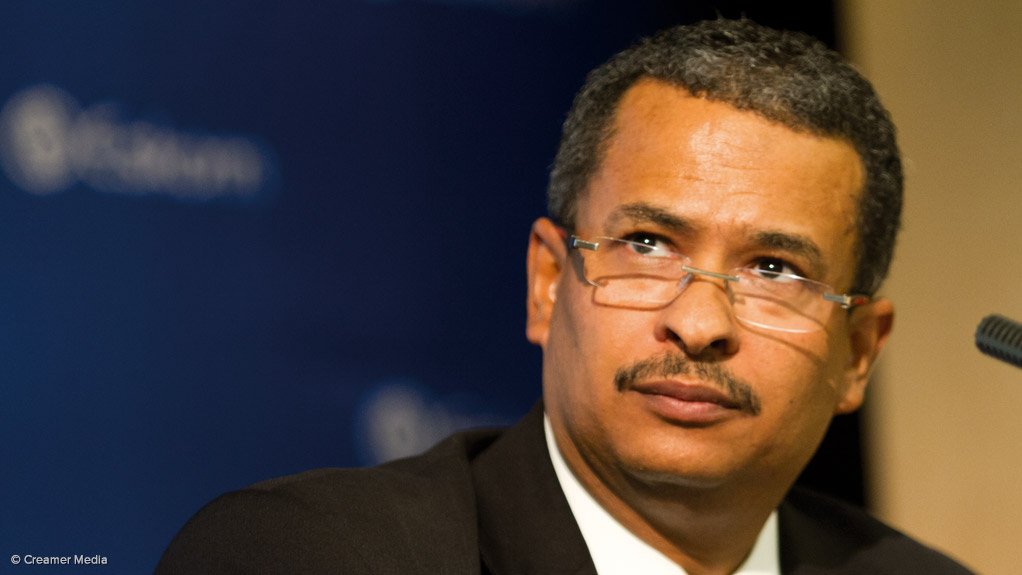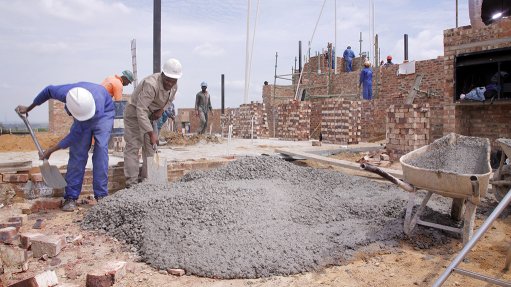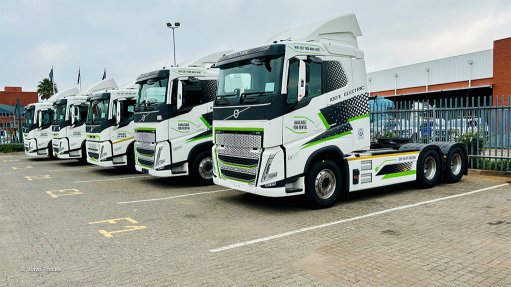Eskom ‘very pleased’ by Coal Three call, Minister more ambivalent
A mixed picture emerged on Tuesday regarding the status of Cabinet’s resolution to pursue the development of a third new large-scale coal-fired power station, with Eskom welcoming the ratification of ‘Coal Three’ and Public Enterprises Minister Malusi Gigaba indicating that other projects might “mitigate the immediate need” for the development.
Eskom CEO Brian Dames indicated that Cabinet’s endorsement of the project at its recent biannual lekgotla provided it with the time it required to make adequate preparations for the project and Eskom was, thus, “very pleased” with decision.
However, he said it would be premature to offer details as to where the project could be located, what technology and contracting model would be employed and how the project could be funded.
The third multiyear price determination (MYPD3) approved by the National Energy Regulator of South Africa earlier in the year did not make provision for Eskom to fund projects beyond its current build programme, which includes the Medupi, Kusile and Ingula power stations.
However, Dames said Cabinet’s backing of Coal Three would enable it to build on the lessons learned from its current build programme – one of which was that timely decisions on mega-projects were required to ensure that future developments avoided the funding, planning, contracting and building pitfalls experienced, particularly at Medupi.
The project would also allow Eskom to prepare for the decommissioning of some of its older, less efficient coal-fired power stations from around 2020 onwards.
Dames argued that Coal Three – which most observers believe will be developed in the coal-rich Waterberg region, of Limpopo – would incorporate technology solutions that lowered its water use and emissions relative to Eskom’s installed base.
However, Gigaba was less forthright on what Cabinet’s decision actually meant, saying government had indicated that it “will, in due course, make an announcement on Coal Three” to ensure that South Africa did not, by 2017/18, run into problems similar to those experienced ahead of the current build programme.
“So the issue of Coal Three, at the level of Cabinet, is being thought of quite seriously,” he said during a presentation made on the current state of the electricity system.
However, he added that there was also the possibility that other new domestic and regional capacity could be sufficient to “alleviate the pressure” to proceed with Coal Three.
A tender was published in August for the appointment of transaction advisers, as well as programme and project managers for the “design, development and implementation” of an independent power producer (IPP) procurement programme for baseload and mid-merit projects.
The invitation sought bids from service providers and was issued by the Development Bank of Southern Africa, which has been mandated by the Department of Energy and the National Treasury to oversee the tender.
Any procurement processes arising would be conducted in line with determinations issued by then Energy Minister Dipuo Peters on December 19, 2012. These outlined plans for the procurement of new generation capacity from coal, gas, industrial cogeneration facilities and hydropower plants. They also indicated that some hydropower and coal capacity could be imported from the region.
The determinations included IPP baseload allocations and allocations arising from the Medium-Term Risk Mitigation (MTRM) plan – both of which have been catered for under the current version of the Integrated Resource Plan (IRP), which is in the process of being revised.
Under the MTRM determination, the DoE is seeking to procure 800 MW of near-term cogeneration capacity, which could arise from biomass, industrial waste and combined heat and power sources. It is also aiming to secure 474 MW from natural gas projects.
Under the baseload determination, 2 500 MW has been allocated to coal-fired IPP projects, 2 652 MW to baseload or mid-merit natural gas capacity and 2 609 MW to domestic and imported hydro-electricity prospects.
The IPP capacity would need to be introduced into the South African electricity system by March 2019, which would be in advance of any new Eskom capacity to follow the introduction of the Medupi, Kusile and Ingula power projects that are meant to be completed by 2018.
In addition, government, which is in the process of reviewing the IRP for electricity, was still expected to make its final determination relating to nuclear later this year.
On nuclear, Gigaba said it would be “folly to hasten towards a decision” until a full assessment was made as to what measures South Africa needed to take to ensure a successful procurement programme.
“Once those decisions are made, government will then look at the capacity of Eskom to fund those programmes and make decisions about how government will assist in that process in light of the MYPD3 decision,” he said, insisting that the decisions were not being “deferred out of negligence”.
Comments
Press Office
Announcements
What's On
Subscribe to improve your user experience...
Option 1 (equivalent of R125 a month):
Receive a weekly copy of Creamer Media's Engineering News & Mining Weekly magazine
(print copy for those in South Africa and e-magazine for those outside of South Africa)
Receive daily email newsletters
Access to full search results
Access archive of magazine back copies
Access to Projects in Progress
Access to ONE Research Report of your choice in PDF format
Option 2 (equivalent of R375 a month):
All benefits from Option 1
PLUS
Access to Creamer Media's Research Channel Africa for ALL Research Reports, in PDF format, on various industrial and mining sectors
including Electricity; Water; Energy Transition; Hydrogen; Roads, Rail and Ports; Coal; Gold; Platinum; Battery Metals; etc.
Already a subscriber?
Forgotten your password?
Receive weekly copy of Creamer Media's Engineering News & Mining Weekly magazine (print copy for those in South Africa and e-magazine for those outside of South Africa)
➕
Recieve daily email newsletters
➕
Access to full search results
➕
Access archive of magazine back copies
➕
Access to Projects in Progress
➕
Access to ONE Research Report of your choice in PDF format
RESEARCH CHANNEL AFRICA
R4500 (equivalent of R375 a month)
SUBSCRIBEAll benefits from Option 1
➕
Access to Creamer Media's Research Channel Africa for ALL Research Reports on various industrial and mining sectors, in PDF format, including on:
Electricity
➕
Water
➕
Energy Transition
➕
Hydrogen
➕
Roads, Rail and Ports
➕
Coal
➕
Gold
➕
Platinum
➕
Battery Metals
➕
etc.
Receive all benefits from Option 1 or Option 2 delivered to numerous people at your company
➕
Multiple User names and Passwords for simultaneous log-ins
➕
Intranet integration access to all in your organisation




















